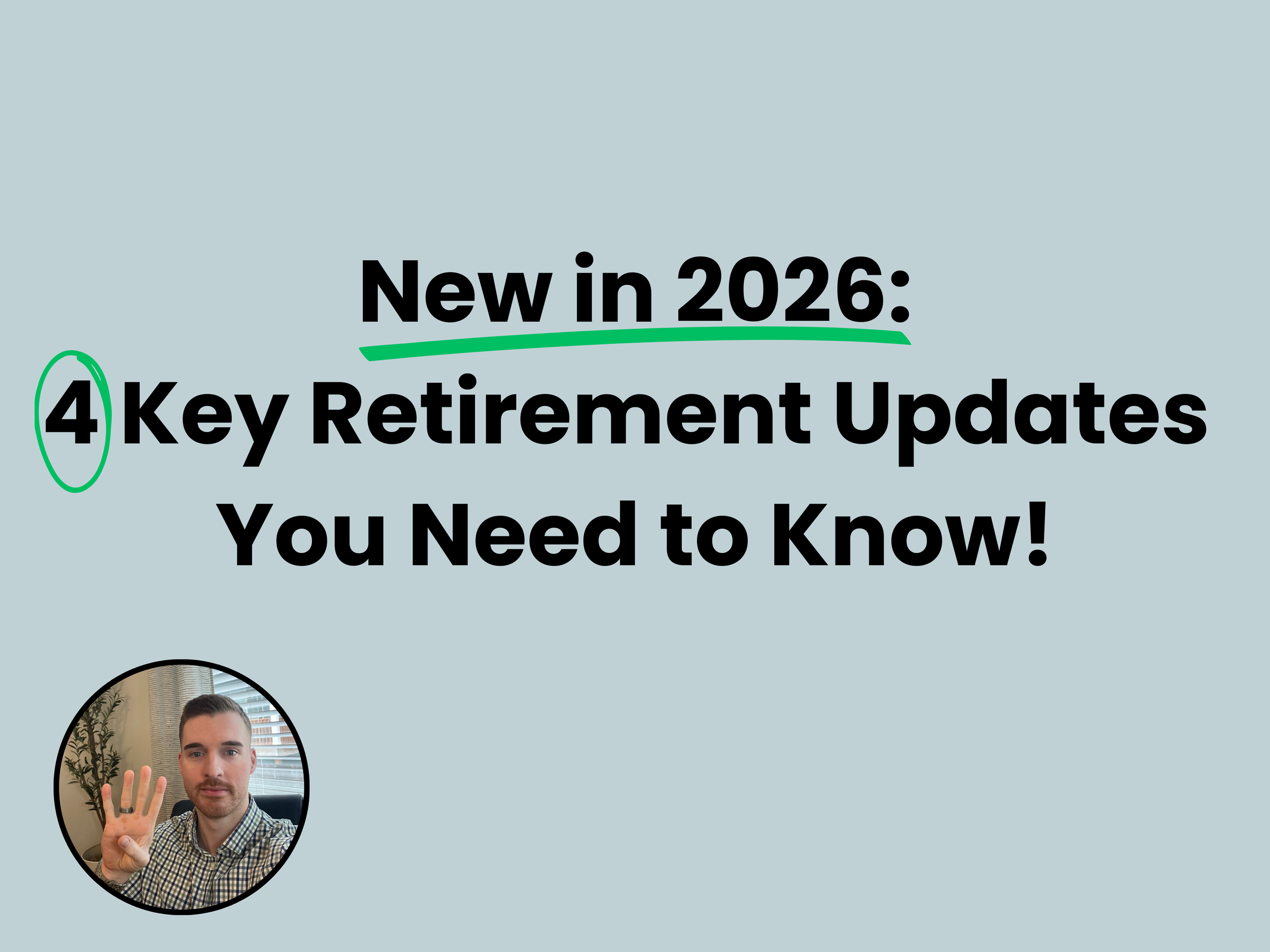Should You Take Social Security at 62, 67, or 70?
Before you rush to file for Social Security, it’s worth considering why you might take it early or why waiting could be a better move.
For many retirees and those approaching retirement, deciding when to start Social Security is one of the most consequential decisions they’ll make.
The three most common claiming ages are:
62:
This is the earliest you may claim Social Security.
Your monthly benefit at age 62 is typically ~30% less than your Full Retirement Age (FRA) benefit.
66/67:
Also known as Full Retirement Age (FRA).
This is the age at which you are entitled to receive “full” Social Security benefits.
70:
You may delay claiming your Social Security benefits until age 70 for an extra annual increase of ~8%/year.
Age 70 is the age at which your benefit caps out and no longer grows.
Your monthly benefit at age 70 is typically ~25% more than your Full Retirement Age (FRA) benefit.
One of the most common concerns I hear is: “Should I claim early before the program runs out of money?”
While it’s true that Social Security has faced funding challenges for many years, the program is almost certainly not going anywhere. The US Government spends the majority of its annual budget on Social Security and Medicare. These are two programs that have been prioritized for many, many decades.
Even if no changes are made, current projections show that around 70–80% of promised benefits would still be payable after 2034.
Lawmakers have several tools to shore up the system, and major reforms are likely to affect younger workers more than current or near retirees.
With all this said, how do you know which timing strategy is right for you?
The answer depends on a mix of your financial position, health outlook, tax strategy, and long-term planning goals. Here are the key considerations broken down.
Why You Might Claim Social Security Early (Age 62)
Age 62 is the earliest age at which most people can begin receiving Social Security benefits.
However, claiming early comes with a permanent reduction. Your monthly benefit can be reduced by up to 30% compared to what you’d receive at full retirement age.
Despite that, there are situations where taking benefits early may make sense:
1) You NEED the income NOW.
If you don’t have sufficient assets or other income sources to support your spending needs, claiming at 62 might be a financial necessity.
In this case, locking in a guaranteed income stream, even at a reduced level, can bring peace of mind.
2) You have health concerns or compromised longevity.
If your family history or personal health profile suggests a shorter life expectancy, it might make more sense to begin benefits sooner rather than later. In these cases, the break-even point (where waiting pays off) may never be reached.
Why You Might Wait to Claim Benefits (Until 67 or 70)
Delaying Social Security (even beyond your full retirement age) can significantly increase your monthly benefit.
For each year you delay past full retirement age (up to age 70), your benefit increases by ~8% per year.
Here are several reasons why waiting might be a better strategy:
1) You have other assets to support income needs now.
Suppose your portfolio, pension, or other income streams are sufficient to cover your expenses in the early retirement years. In that case, delaying Social Security for higher expected lifetime cumulative benefits may be worth it.
2) You expect to live a long time.
Like the first point, if longevity runs in your family and your health is strong, delaying may likely result in greater cumulative benefits paid to you over your lifetime.
But there are also some lesser-known reasons to delay Social Security that are just as important:
Three Strategic Reasons to Delay Social Security
1) To Preserve Your ACA Health Insurance Credits
If you're retiring before age 65 and plan to use the Affordable Care Act (ACA) marketplace for health coverage, taking Social Security early can increase your taxable income and disqualify you from valuable ACA premium subsidies.
Delaying Social Security can help you stay under the income threshold and preserve those credits, saving you thousands every year.
2) You Determine That a Roth Conversion Strategy Makes Sense
For many retirees, the early retirement window (from retirement until age 70 or when Required Minimum Distributions begin) presents a powerful tax planning opportunity.
After stopping working, many retirees see their taxable income drop off.
With low or no Social Security income, you can convert pre-tax IRA assets (that will have to be taxed at some point in the future) to Roth IRAs at lower tax rates today, while your income is low.
Once Social Security and Required Minimum Distributions (RMDs) begin, they can greatly increase your taxable income, and can cause you to be forced to pay tax on these sources at higher tax rates.
3) To Increase Spousal and Survivor Benefits
If you’re the primary income earner in a marriage, delaying your benefit can result in a larger spousal benefit for your partner. Your non-working spouse is typically eligible for a spousal benefit that is 50% of your benefit if you (the primary income earner) wait to take your benefits at Full Retirement Age.
You can also guarantee a larger survivor benefit if you pass away first.
This can be especially important if your spouse doesn’t have significant income sources of their own.
Shoot, I Think I Claimed Social Security Too Early!
If you believe that you may have claimed your Social Security benefit earlier than you might’ve liked in hindsight, you have 12 months after claiming to withdraw your election.
The catch is that this must be done within 12 months of your benefit approval, and you may only cancel your benefit election once.
You must also pay back all of the benefits that you received, including the amounts withheld for taxes and Medicare premiums.
Find out more here.
The Bottom Line
As with anything in our financial lives, it’s best to measure twice and cut once.
There’s no one-size-fits-all answer when it comes to Social Security timing.
The “best” age to start depends on your income needs, life expectancy, tax strategy, and how Social Security fits into your broader retirement plan.
If you’re approaching retirement and wondering when to take Social Security, I’d be happy to help you explore the options and coordinate it with your broader retirement income plan.




